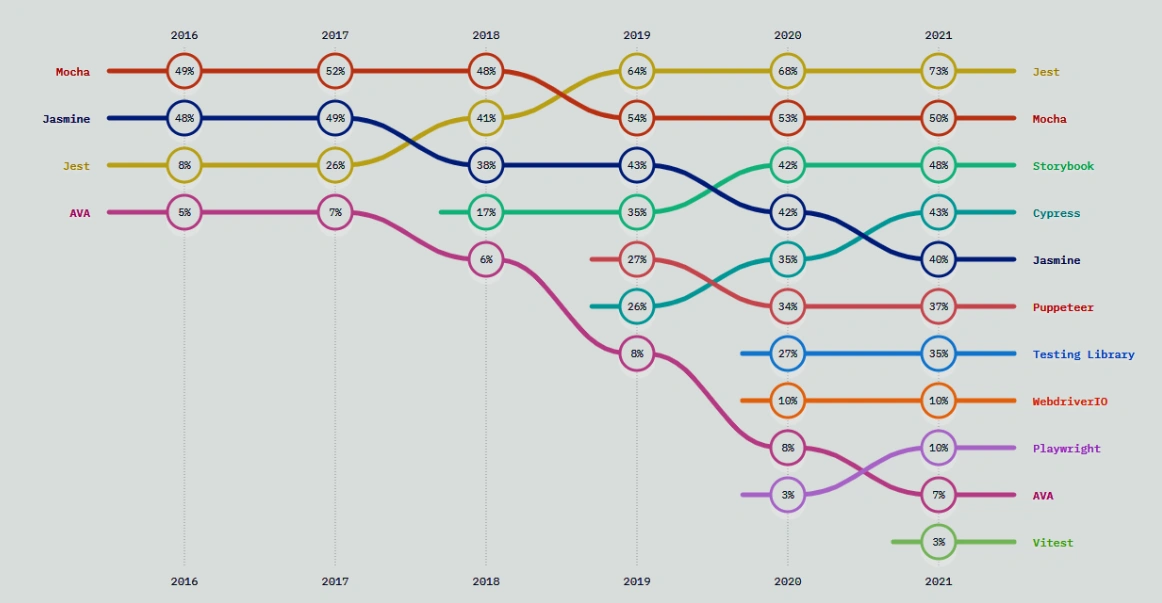Today is September 10, 2025. Mocha is a JavaScript test framework that runs on Node.js and in browsers. Created by TJ Holowaychuk in 2011, it's survived this long because it doesn't make assumptions about what you want.
What Makes Mocha Different

Mocha is the opposite of Jest. Where Jest gives you everything in one package, Mocha gives you a test runner and tells you to figure out the rest. Want Chai for assertions? Fine. Prefer Sinon for mocking? Whatever. It doesn't care.
This matters because when you need to debug why your test is hanging at 2am, you at least know which piece is broken. With Jest, everything's bundled together and you're debugging Facebook's decisions.
Current Status and Adoption
Mocha 11.7.2 needs Node 18+. Jest has 30M weekly downloads, Mocha has 11M. Jest wins on popularity, Mocha wins when you actually need to understand what's happening under the hood.
Key Strengths
Async Handling: Supports callbacks, Promises, and async/await. Just don't mix them - mixing async patterns makes tests hang forever. Ask me how I know.
Browser and Node.js Support: Same tests run in both environments. Useful for libraries, but the browser setup will eat a few hours of your life. ES modules make it worse.
Extensive Ecosystem: Built-in reporters, tons of plugins. Integrates with nyc for coverage, Mochawesome for HTML reports, and most CI systems.
Parallel Testing: Parallel mode speeds things up nicely until you have shared state. Parallel mode + database tests = debugging nightmare. Tests start failing randomly because worker processes step on each other.
When to Choose Mocha
Choose Mocha if you want control and don't mind configuration. Choose Jest if you want everything to work immediately.
Mocha forces you to make decisions about assertions, mocking, and coverage. Jest makes those decisions for you. Both work - depends on whether your team likes control or convenience.